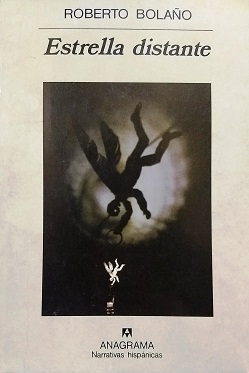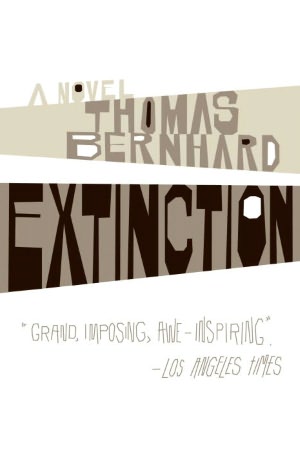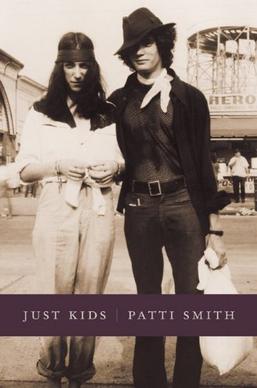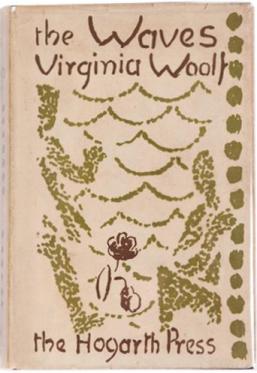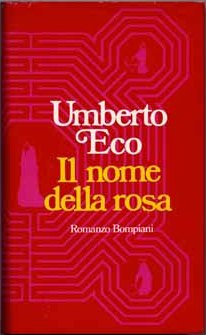NYC 1/31
Metal of the city,
wrought, melting rust, bending hy-
-phen to time. You pause.
31 January 2012
30 January 2012
Broken Bottle
Broken Bottle 1/30
Glitter under foot -
is sticks - broken bottle - turn
a page and bleed out.
Glitter under foot -
is sticks - broken bottle - turn
a page and bleed out.
29 January 2012
28 January 2012
27 January 2012
January 27 2012
January 27 2012 1/27
Flies in the kitchen.
Winter is dead long live - some
thing else. Trees bud green.
Flies in the kitchen.
Winter is dead long live - some
thing else. Trees bud green.
26 January 2012
Reading List 2011 : Part Four
Reading List 2011 : Part Four
About a Mountain (2010) by John D'Agata
John D'Agata is a bit of a mystery. His bios read like a very carefully constructed mask. Bare bones in a very self-conscious way. I've read all of his books. Halls of Fame is one of my favorite non-fiction books of the 2000s. I wrote a speculative essay about his childhood for a class in college. He taught a workshop I attended. He has influenced my writing in a real way. I would put him in line as the heir of Joan Didion. Which is probably a loaded statement.
About a Mountain is a book about a suicide. A book about Las Vegas. A book about the proposed radioactive dump at Yucca Mountain. It is at its core, a book about how human lives intersect in strange and wonderful ways. It is about synchronicity.
Now go read Didion's The White Album. At her best she is about synchronicity as well. Even at her worst she lays the lines we cannot see. D'Agata does this too. And it is magical even when flawed.
Distant Star (1996) by Roberto Bolaño
Distant Star is a short book, 150 pages. It is an expansion of a shorter work from Bolaño's book Nazi Literature in the Americas. The story concerns the strange history of aviator Alberto Ruiz-Tagle. He starts a strange poetic movement in Pinochet's Chile. Ruiz-Tagle sky writes his poems. Using an airplane and smoke. He comments and promotes the Pinochet government. Ruiz-Tagle is slowly revealed to be way more involved in the dark corners of the government over the course of the book. Everything is witnessed by Arturo B. and the book is framed as a story Bolaño was told. A classic double blind.
The book twists and turns and for being so short manages to read like a classic noir. It feels very close to The Third Man at times and Bolaño's use of language is amazing. A tightly wound novel. And quick to read.
The Lost Books of The Odyssey (2007) by Zachary Mason
Mason's book is weird. It reads like the actual text of the Odyssey but is clearly not.
Told in short (sometimes as short as a sentence) vignettes, the whole Odyssey story is told disjointed and broken up. Each section told as if from a different time/place. Some times Odysseus is a monster, a lover, a martyr. There are sections where he doesn't appear. The 'villains' of the story are given back story and allowed to have been wronged. The cyclops, Polyphemus, is actually a malformed man who is killed viciously by the Ithacans. In another view he is the savage demon out to eat the men.
Mason creates a whirlwind. In doing so, he manages to press Homer's epic further into myth while remarrying it to its bardic roots.
My Father and Myself (1968) by J. R. Ackerley
The posthumous autobiography that reveals family secrets is nothing new. Ackerley's book is a dual biography. Of himself, and by accident, of his father Roger.
When Ackerley's father died a Pandora's Box was opened revealing a secret life. The elder Ackerley was a closeted gay man. Ackerley himself was openly gay. What follows is an account of Ackerley trying to unravel the secret life his father led and Ackerley's own sad sexual misadventures.
The book's third act involves Ackerley settling at non-sexual and getting a dog. Heartbreaking, and beautiful, Ackerley captures the tensions between father and son and of the age they lived.
The Manual of Detection (2009) by Jedediah Berry
Charles Unwin closely follows the career of Travis Sivert. When Sivert goes missing, Charles is unceremoniously promoted to detective. He finds a corpse in an office and has a narcoleptic assistant who is everything but helpful.
A strange whodunit that coalesces on the idea of how one sees, how one exists, and what a person actually is. The reader watches as Charles must learn to be a detective, follow the rules and solve the mystery of his predecessor's mistakes and ultimate disappearance. Dreamy, fun read.
About a Mountain (2010) by John D'Agata
John D'Agata is a bit of a mystery. His bios read like a very carefully constructed mask. Bare bones in a very self-conscious way. I've read all of his books. Halls of Fame is one of my favorite non-fiction books of the 2000s. I wrote a speculative essay about his childhood for a class in college. He taught a workshop I attended. He has influenced my writing in a real way. I would put him in line as the heir of Joan Didion. Which is probably a loaded statement.
About a Mountain is a book about a suicide. A book about Las Vegas. A book about the proposed radioactive dump at Yucca Mountain. It is at its core, a book about how human lives intersect in strange and wonderful ways. It is about synchronicity.
Now go read Didion's The White Album. At her best she is about synchronicity as well. Even at her worst she lays the lines we cannot see. D'Agata does this too. And it is magical even when flawed.
Distant Star (1996) by Roberto Bolaño
Distant Star is a short book, 150 pages. It is an expansion of a shorter work from Bolaño's book Nazi Literature in the Americas. The story concerns the strange history of aviator Alberto Ruiz-Tagle. He starts a strange poetic movement in Pinochet's Chile. Ruiz-Tagle sky writes his poems. Using an airplane and smoke. He comments and promotes the Pinochet government. Ruiz-Tagle is slowly revealed to be way more involved in the dark corners of the government over the course of the book. Everything is witnessed by Arturo B. and the book is framed as a story Bolaño was told. A classic double blind.
The book twists and turns and for being so short manages to read like a classic noir. It feels very close to The Third Man at times and Bolaño's use of language is amazing. A tightly wound novel. And quick to read.
The Lost Books of The Odyssey (2007) by Zachary Mason
Mason's book is weird. It reads like the actual text of the Odyssey but is clearly not.
Told in short (sometimes as short as a sentence) vignettes, the whole Odyssey story is told disjointed and broken up. Each section told as if from a different time/place. Some times Odysseus is a monster, a lover, a martyr. There are sections where he doesn't appear. The 'villains' of the story are given back story and allowed to have been wronged. The cyclops, Polyphemus, is actually a malformed man who is killed viciously by the Ithacans. In another view he is the savage demon out to eat the men.
Mason creates a whirlwind. In doing so, he manages to press Homer's epic further into myth while remarrying it to its bardic roots.
My Father and Myself (1968) by J. R. Ackerley
"The fair sex? And which sex is that?" (The Prisoners of War)
When Ackerley's father died a Pandora's Box was opened revealing a secret life. The elder Ackerley was a closeted gay man. Ackerley himself was openly gay. What follows is an account of Ackerley trying to unravel the secret life his father led and Ackerley's own sad sexual misadventures.
The book's third act involves Ackerley settling at non-sexual and getting a dog. Heartbreaking, and beautiful, Ackerley captures the tensions between father and son and of the age they lived.
The Manual of Detection (2009) by Jedediah Berry
Charles Unwin closely follows the career of Travis Sivert. When Sivert goes missing, Charles is unceremoniously promoted to detective. He finds a corpse in an office and has a narcoleptic assistant who is everything but helpful.
A strange whodunit that coalesces on the idea of how one sees, how one exists, and what a person actually is. The reader watches as Charles must learn to be a detective, follow the rules and solve the mystery of his predecessor's mistakes and ultimate disappearance. Dreamy, fun read.
Doryphore
Doryphore 1/26
Prig.
Glass house spiders.
This shard, ram it up your ass.
Stone is as stone.
Hard.
Prig.
Glass house spiders.
This shard, ram it up your ass.
Stone is as stone.
Hard.
25 January 2012
24 January 2012
Adscititious
Adscititious 1/24
A drawer of bolts.
Broken rulers - bolts - bolts - dust.
A ball of dark hair.
23 January 2012
Reading List 2011 : Part Three
Reading List 2011 : Part Three
Biography is a tried and true genre. Detail the beginnings of a life. The birth, glass over the family, skip to schooling, adulthood, marriage, fame, downfall if applicable, and finally death.
Lauren Redniss' book on the Curie's is not different. It parallels the two as they age, meet, fall in love, then change the world. Pierre dies young and Marie is left to win a Nobel, fall in love with a married man, is the cause of a duel, and finally to die from the very thing she discovered. All very normal biography material.
Redniss tells this story through paintings, comic book panels and glow-in-the-dark wonders. How better to tell of the discoveries of radium and polonium then in beautifully rendered water colors? Redniss was a finalist for the National Book Award and has won many other awards for this 200 page object of beauty.
The Ice Trilogy (2002-2005) by Vladimir Sorokin
I had a bit of a Russian theme going for a large chunk of the year. This trilogy has been published in the US by the New York Review of Books publishing arm as one volume.
In 1908 in Tunguska, Russia a meteorite blast epically destroyed a large swath of forest. In the aftermath a man feel compelled to the impact site. Once there he finds the ball of space ice and cracks his sternum open on it, bleeding until he falls into unconsciousness. When he awakes, he realizes that he is one of 23,000 celestial beings responsible for the creation of the universe and it is up to him to find his amnesiac brothers and sister amongst the people of Earth. Then destroy the planet, their perceived flawed creation.
Through the three novels - Bro, Ice, and 23,000 - Sorokin takes us from a small band of special people trying to climb a mountain to reach a goal to an eventual corruption of the idea and the stunning race against time conclusion where humans must fight to save their planet from destruction. He manages to be both Chekov and Asimov. And it works amazingly well.
Extinction (1986) by Thomas Bernhard
Franz is an exile from his family's estate in Austria. He lives in Rome and creates a world for himself that he likens to high art. When his parents and older brother die suddenly in a car crash he is forced home to become the head of the estate he never wanted. He must decide the fate of the house, the lands, and his sister. All of which he hates.
Bernhard's final novel before his death in 1989. The book is written as a long form monologue. I found this after Vintage recently republished all of Bernhard's books. Honestly, I found this book a little tedious. Franz is unlikable, whiny, a misanthrope. He hates the world and the world seems to hate him, until the veil begins to fall and we see the world without his lens. A fascinating character study that will infuriate at times but pays off in the end. So good I read another Bernhard novel later in the year.
Anne Carson from the Preface: "Why does tragedy exist? Because you are full of rage. Why are you full of rage? Because you are full of grief."
B.M.W. Knox on Euripides: "...he was born never to live in peace with himself and to prevent the rest of mankind from doing so."
Carson is hands down one of my favorite writers. Plain Water vibrates with sorrow. Anger bubbling just under the surface. Here she takes a look at history's oldest grief monger.
Carson translates four plays: Herakles, Hekabe, Hippolytos, and Alkestis. Before each she breaks each down in short prefaces on the plays. What they do, how. She is lyric, magic, and spins these ancient tales into modern parables. Each a story where heroes are torn apart and revealed to be all too human, too frail. They break apart the stories we think we know and remold them into tales of sadness that are all too close to home.
Tana French has been a bit of a love affair for me. I have read her three books as quickly as they have been published. They are a disconnected series. This is the third one. In each the narrator was a minor character in the previous. In this one Frank Mackey is forced to return to his family home to solve a strange mystery involving a suitcase and a body under the floorboards of an abandoned house. The mystery of what happened to Frank's first girlfriend 20+ years before.
Faithful Place is not your basic murder mystery. She doesn't follow basic mystery tropes. French has a way with character. A page in and you are stuck. You want to linger with these people, know them. Similar to Haruki Murakami, French gives you the details that bring them alive. You know their inner psyche. From the city streets of Dublin to the council estates in the hills around Ireland, these books breathe.
I recommend starting at the beginning, In The Woods, then The Likeness, before reading this one. Though you can read them out of order, they each tell a different story. Her new book Broken Harbour comes out in July.
Dragonet
Dragonet 1/23
Cloudbreak spread unfurl
pop and scream. The world turns down.
Opens its eyes cries.
Cloudbreak spread unfurl
pop and scream. The world turns down.
Opens its eyes cries.
22 January 2012
21 January 2012
Nyctograph
Nyctograph 1/21
Squares against the night.
Unawake, walking hallways.
Wordless inventions.
Squares against the night.
Unawake, walking hallways.
Wordless inventions.
20 January 2012
Haiku 1/20
Haiku 1/20
Bury your heart - it
is a pulse in the night. Start
your face. Look northward.
Bury your heart - it
is a pulse in the night. Start
your face. Look northward.
19 January 2012
Reading List 2011 : Part Two
Another Country (1962) by James Baldwin
Rufus is a black man and failed jazz musician. Rufus is abusive to his southern, white girlfriend, Leona. In a fit of despair, he kills himself by jumping off the George Washington Bridge. What follows is the meltdown of his small group of friends.
Cass and Richard are in a loveless marriage. Vivaldo can't finish the novel he's been working on for years and starts to sleep with Rufus' sister Ida. Eric is gay and has a sexual history with Rufus. He returns to the US from France and starts sleeping with Cass. No one can see the racism and classism that cages them all in. It all falls apart.
A beautiful study of a specific time and place in US history. Magical and unpredictable,this is the art of characters being unable to accept the world at hand and unwilling to move passed it when they are confronted with it.
How To Live; OR Life of Montaigne In One Question and Twenty Attempts at an Answer (2010) by Sarah Bakewell
How does one live? In 2011 it is almost a shocking question to try to answer. Sarah Bakewell attempts to by drawing from one of the strangest works of non-fiction ever written.
First published in 1580, Montaigne's Essays is a sprawling, rambling attempt to explain everything. Literally. He traces his own thought process through endless corridors. Each of the 107 essays is a meditation on the man as much as the topic he supposedly is discussing. Bakewell takes the Essays and turns them inside out in an attempt to see how Montaigne thought and to examine what lessons we can glean from them today. To actually explain how Montaigne lived is to explain how humanity lives.
Hottest Dishes of the Tartar Cuisine (2010) by Alina Bronsky
"As my daughter Sulfia was explaining that she was pregnant but that she didn't know by whom, I paid extra attention to my posture. I sat with ,y back perfectly straight and folded my hands elegantly in my lap."
This is how we are introduced to Rosa and her 17 year old daughter Sulfia. What follows is a farce of Soviet-era refugees in Germany. Rosa is a beleaguered woman. Her husband is an idiot, her daughter stupid, and everyone around her is less then she wants or needs. The book follows about two decades of the family's life.
What feels like a simple light novel about family pain turns out to be so much more. Bronsky weaves beautiful characters that breathe on the page and threaten to move in with you. Rosa is one of the most infuriating creations I've ever seen. She is an unreliable narrator, foul tempered and fussy, but you love her so much more for it.
Broken Glass Park (2008) by Alina Bronsky
I enjoyed Hottest Dishes so I decided to check out Bronsky's recently first novel. You can see the growth between the two books. Hottest Dishes is more ambitious, funnier, it reaches a littler further out of the box. Broken Glass Park is much darker, more brutal, serious. A quick scan of this book's first paragraph compared to Hottest Dishes will tell you much:
"Sometimes I think I'm the only one in our neighborhood with any worthwhile dreams. I have two, and there's no reason to be ashamed of either one. I want to kill Vadim. And I want to write a book about my mother. I already have a title: The Story of an Idiotic Redheaded Woman Who Would Still Be Alive If Only She Had Listened To Her Smart Oldest Daughter."
That is Sascha, a teenage misanthrope who before novels end will have taken care of her aunt and little sister as well as plotted a murder and taken a naive boys virginity. Brutally honest with a concrete ending.
Just Kids (2010) by Patti Smith
What can be said about a book that is universally praised?
Read this book. It is rapture.
Rufus is a black man and failed jazz musician. Rufus is abusive to his southern, white girlfriend, Leona. In a fit of despair, he kills himself by jumping off the George Washington Bridge. What follows is the meltdown of his small group of friends.
Cass and Richard are in a loveless marriage. Vivaldo can't finish the novel he's been working on for years and starts to sleep with Rufus' sister Ida. Eric is gay and has a sexual history with Rufus. He returns to the US from France and starts sleeping with Cass. No one can see the racism and classism that cages them all in. It all falls apart.
A beautiful study of a specific time and place in US history. Magical and unpredictable,this is the art of characters being unable to accept the world at hand and unwilling to move passed it when they are confronted with it.
How To Live; OR Life of Montaigne In One Question and Twenty Attempts at an Answer (2010) by Sarah Bakewell
How does one live? In 2011 it is almost a shocking question to try to answer. Sarah Bakewell attempts to by drawing from one of the strangest works of non-fiction ever written.
First published in 1580, Montaigne's Essays is a sprawling, rambling attempt to explain everything. Literally. He traces his own thought process through endless corridors. Each of the 107 essays is a meditation on the man as much as the topic he supposedly is discussing. Bakewell takes the Essays and turns them inside out in an attempt to see how Montaigne thought and to examine what lessons we can glean from them today. To actually explain how Montaigne lived is to explain how humanity lives.
Hottest Dishes of the Tartar Cuisine (2010) by Alina Bronsky
"As my daughter Sulfia was explaining that she was pregnant but that she didn't know by whom, I paid extra attention to my posture. I sat with ,y back perfectly straight and folded my hands elegantly in my lap."
This is how we are introduced to Rosa and her 17 year old daughter Sulfia. What follows is a farce of Soviet-era refugees in Germany. Rosa is a beleaguered woman. Her husband is an idiot, her daughter stupid, and everyone around her is less then she wants or needs. The book follows about two decades of the family's life.
What feels like a simple light novel about family pain turns out to be so much more. Bronsky weaves beautiful characters that breathe on the page and threaten to move in with you. Rosa is one of the most infuriating creations I've ever seen. She is an unreliable narrator, foul tempered and fussy, but you love her so much more for it.
Broken Glass Park (2008) by Alina Bronsky
I enjoyed Hottest Dishes so I decided to check out Bronsky's recently first novel. You can see the growth between the two books. Hottest Dishes is more ambitious, funnier, it reaches a littler further out of the box. Broken Glass Park is much darker, more brutal, serious. A quick scan of this book's first paragraph compared to Hottest Dishes will tell you much:
"Sometimes I think I'm the only one in our neighborhood with any worthwhile dreams. I have two, and there's no reason to be ashamed of either one. I want to kill Vadim. And I want to write a book about my mother. I already have a title: The Story of an Idiotic Redheaded Woman Who Would Still Be Alive If Only She Had Listened To Her Smart Oldest Daughter."
That is Sascha, a teenage misanthrope who before novels end will have taken care of her aunt and little sister as well as plotted a murder and taken a naive boys virginity. Brutally honest with a concrete ending.
Just Kids (2010) by Patti Smith
What can be said about a book that is universally praised?
Read this book. It is rapture.
Raven
Raven 1/19
Slash - against blank field.
A broken jar spinning loose.
Down the wind - cough - scratch.
Slash - against blank field.
A broken jar spinning loose.
Down the wind - cough - scratch.
18 January 2012
Absquatulate
Absquatulate 1/18
My left foot bends - I
have an affliction of clocks -
Dance motherfucker.
My left foot bends - I
have an affliction of clocks -
Dance motherfucker.
17 January 2012
Reading List 2011 : Part One
I took a moment to look back at the books I read in 2011. I figured I'd make a short list and give my opinions of each. I was surprised to find that I had read 46 books. So what was to be a short list turned into a series.
Anathem (2008) by Neal Stephenson
On a planet that may or may not be a future Earth religion has replaced science. The monks hide away in monasteries that are essentially closed fortresses. The arrival of aliens breaks apart the society. A lot of long winded passages on ancient Greek philosophy ensue. They are broken up by two amazing action packed set pieces that kept me trudging through this 928 page novel. I almost put it down several times. I kept hoping for more of the monks in the wilderness and less of the Jim Jarmusch-esque talking head nonsense.
Stephenson is a great writer. The characters and set pieces are grand and vivid. He is Philip K. Dick with more literary and scholarly ambitions. I would compare him to Margaret Atwood. That he convinced a publisher to print 928 pages says more then I could about his writing. That said, I think a good 200 of those pages could have been chopped. His new book REAMDE has been called 'his most accessible'. I will give him a second shot, but I don't recommend this unless you have a lot of free time and are into Greek philosophy and long monologues.
Housekeeping (1980) by Marilynne Robinson
Ruth and Lucile are young girls on the edge of puberty. They get passed between family members until their aunt hobo Sylvie comes to live with them permanently. What ensues is a study in different lifestyles. Ruth slowly becomes her aunt. Ephemeral, transient, dreaming. Lucile abandons them for the world of 'normality'. The final breaking between the sisters is a literal flooding of their home that leaves them wading for weeks, using the couches as boats.
Robinson wrote her debut novel in 1980. Her second novel, Gilead, came out in 2004 and won a Pulitzer. In between are two short collections of essays. Her style is dreamy, magical realist to an extreme. She lightly sketches place and time but you are never lost. At only 219 pages, the book is fast paced and leaves you wanting more. The end is a stripping down of reality that sticks with you long after. One of the best books I read in 2011. Ruth is a magical creation, read this book then see the film version directed by Bill Forsyth and staring Christine Lahti.
The Waves (1931) by Virginia Woolf
Woolf is difficult. I love/hate her. This book is a 300 page soliloquy. It is arguably one of the most experimental books I have read that still manages to be readable. There is only dialogue present and characters are conveyed through conversation and loose inferences. A group of friends are traced from school to death. We are left at the end with one voice retracing the paths we have all trodden together.
Beautiful and maddening. The closest comparison in terms of audacity would be The Autobiography of Alice B. Toklas by Gertrude Stein. This book is very similar to The Queue by Vladimir Sorokin, which will come up later. Read To The Lighthouse first, then The Waves.
Sheppard Lee (1836) by Robert Montgomery Bird
I like to read books in a sort of methodical order. I pick what book I am going to read next based on what I just finished. Sheppard Lee was picked because it is essentially about a man who leaves his body and wonders around exploring what other lives would be like. It is a physical version of The Waves. It isn't the voices that muddle, it is the bodies and lives. Sheppard Lee starts life as a down and out land owner and ends up a slave. Along the way he explores being a Samaritan and a skin-flint loan shark. For a book written 180 years ago it reads like it was written today.
The Name of the Rose (1980) by Umberto Eco
I wanted to read another book with monks. Something simple. Umberto Eco's classic Sherlock Holmes-esque was the obvious choice.
William and his novice Adso travel to a monastery in Northern Italy. Once there the bodies start to pile up and a series of secrets and conspiracies unravel. Along the way the novice meets a lovely lady, the Inquisition rears its head, and a labyrinthine library is explored. And at the heart is a great secret. Wonderful novel. Go read it now. There is a beautifully filmed 1986 movie staring Sean Connery and a very young Christian Slater (who gets naked!). It's worth a viewing but read the book first. They turn it into a comedy.
16 January 2012
15 January 2012
14 January 2012
13 January 2012
12 January 2012
11 January 2012
Aegrotat
Aegrotat 1/11
Night - the world goes blank
I roam rooms and pray smoothness
Life give me a pass
Night - the world goes blank
I roam rooms and pray smoothness
Life give me a pass
10 January 2012
Brain Sucker
Brain Sucker 1/10
Edison, that dick,
sucks the brains of other men
and takes the credit.
Edison, that dick,
sucks the brains of other men
and takes the credit.
09 January 2012
Adumbrate
Adumbrate 1/9
I want to explain to you
I need to explain to you
The white face at the window
The tears rolling down the cheeks
I want to explain to you
I need to explain to you
The white face at the window
The tears rolling down the cheeks
08 January 2012
Froggery
Froggery (W8) 1/8
Hollow shells of night.
The lamps cocoon the footpath/
us in facelessness.
Hollow shells of night.
The lamps cocoon the footpath/
us in facelessness.
07 January 2012
Reductio Ad Absurdum
Reductio Ad Absurdum 1/7
Dear business, when you
make your application, no
author/title tests.
Dear business, when you
make your application, no
author/title tests.
06 January 2012
Dog In The Manger
Dog In The Manger 1/6
Will watch until the
morning. Will keep the door. Will
watch the moon ‘til dawn.
05 January 2012
04 January 2012
03 January 2012
01 January 2012
Greenhew
Greenhew 1/1
Moss fills the walls green.
The cracks sealing softly, it
smoothes broken pasts.
Subscribe to:
Posts (Atom)

